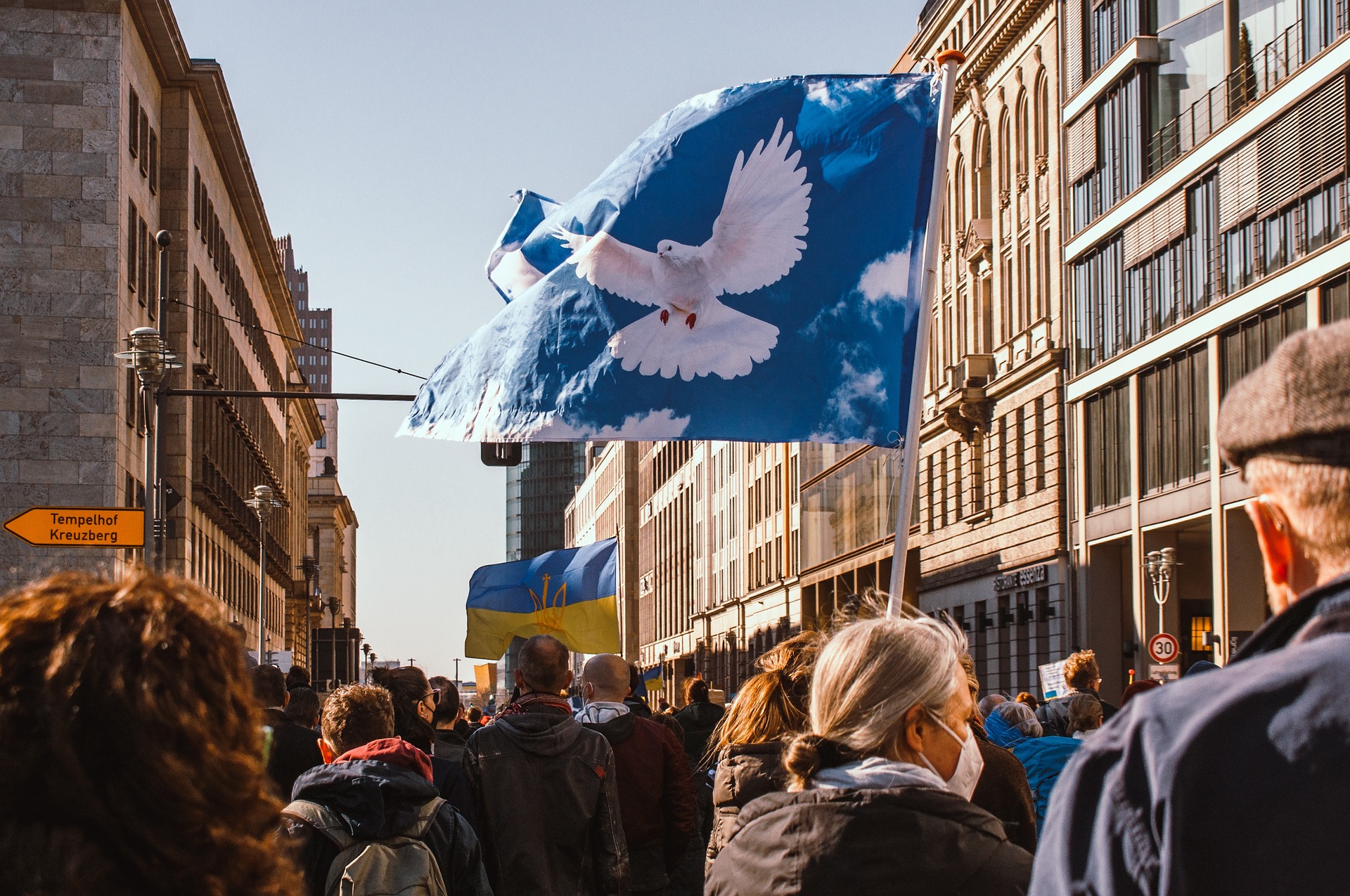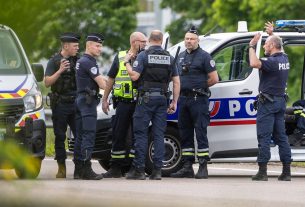On Sunday, prominent Russian opposition figures organized a significant protest march in Berlin, drawing at least 1,000 demonstrators to the streets of the German capital. The march was a powerful display of opposition to Russian President Vladimir Putin and his ongoing war in Ukraine, reflecting the growing discontent among many Russian dissidents and expatriates regarding the Kremlin’s actions.
The protest, held in central Berlin, is part of a broader wave of anti-Putin sentiment among Russian nationals abroad, particularly in Europe. As the war in Ukraine enters its second year, opposition to the conflict has only intensified, with more voices emerging from within the Russian diaspora calling for an end to the invasion and an end to Putin’s authoritarian rule.
A Unified Stand Against Putin
Leading the march were several high-profile Russian opposition figures who have been vocal critics of Putin’s government and his military actions in Ukraine. Among the participants were prominent activists, former political prisoners, and human rights advocates who have been forced into exile due to their opposition to the Kremlin.
The demonstrators carried banners and placards bearing messages such as “Stop the War in Ukraine” and “Putin is a War Criminal.” There were also placards calling for a change in leadership, with slogans like “Putin Must Go,” expressing widespread frustration not only with the war but also with the broader political repression in Russia.
The march in Berlin underscores the importance of solidarity among Russian exiles and international communities who view the war in Ukraine as a direct challenge to democracy, human rights, and international law. The participants, many of whom have fled Russia due to persecution, believe that the war is not only a violation of Ukraine’s sovereignty but also a threat to the stability of Europe and global peace.
The Role of the Russian Diaspora
The Russian opposition in exile has become an increasingly influential force in raising awareness about the brutality of the conflict in Ukraine. Many of the participants in Sunday’s march were part of a broader movement that has mobilized Russian expatriates across Europe and beyond to speak out against Putin’s regime.
Berlin, which has long been home to a significant Russian expatriate community, has become a focal point for these protests. The city’s strong ties to Russian cultural and political figures—especially during the Cold War—have made it an important hub for political activism and dissent against the Russian government.
The protest was not only a condemnation of Putin’s war in Ukraine but also a call for international action. Demonstrators expressed a desire for stronger sanctions against Russia, more support for Ukraine, and greater accountability for the Russian leadership, particularly in relation to war crimes.
A Response to Repression in Russia
The march in Berlin is also a direct response to the severe repression faced by Russian activists within Russia. Since the invasion of Ukraine in February 2022, the Russian government has cracked down on dissent, criminalizing anti-war protests, suppressing independent media, and arresting opposition figures. Many prominent Russian dissidents, including Alexei Navalny, the opposition leader who has been imprisoned for his anti-corruption work, have become symbols of resistance to Putin’s regime.
While the Russian government has made it increasingly difficult for opposition to voice their views within the country, the international community, especially in Europe, has become a safe haven for Russian activists. In Berlin and other European capitals, Russian opposition figures continue to demand accountability, advocating for global action against Putin’s policies and the broader authoritarian trajectory of the Russian government.
Growing Calls for Accountability
One of the key demands from the marchers was the need for international accountability for Russian actions in Ukraine. This includes calls for the prosecution of Russian leaders for war crimes committed during the invasion, especially in areas like Bucha, Mariupol, and Kherson, where reports of atrocities and human rights violations have surfaced.
The International Criminal Court (ICC) has issued warrants for the arrest of President Putin and other top Russian officials, accusing them of war crimes and crimes against humanity. Despite the Russian government’s defiance and refusal to acknowledge these charges, international pressure continues to mount for justice.
The protest in Berlin adds to a growing chorus of voices, both within and outside Russia, calling for Putin’s accountability. Many of the protesters in Berlin have urged the international community to increase support for Ukrainian refugees, provide military aid to Ukraine, and hold Russia to account for its actions on the global stage.
A Wider Global Movement
The demonstration in Berlin is part of a broader movement of opposition protests that have taken place across Europe, including in cities like London, Paris, and Warsaw. These protests have often been organized by Russian activists in cooperation with local Ukrainian and European solidarity groups, creating a transnational network of anti-war, pro-democracy, and pro-human rights activists.
With the war showing no signs of abating, opposition to Putin’s leadership remains a central issue for Russian dissidents abroad. The protest in Berlin, however, serves as a reminder that the fight against authoritarianism is not just a domestic issue but a global one. Activists in exile are pushing for systemic change not only in Russia but also in how the international community responds to authoritarian regimes.
Conclusion: Voices of Resistance
The march in Berlin is a testament to the resilience and determination of Russian opposition groups who continue to resist the war and Putin’s leadership. For the demonstrators, the conflict in Ukraine is not just a war on Ukrainian soil—it is a struggle for the future of Russia itself.
As the war continues to drag on with no clear resolution in sight, protests like the one in Berlin are an important reminder of the human cost of the conflict and the need for solidarity across borders. The voices of Russian dissidents, now amplified in the global arena, represent a powerful force calling for peace, justice, and the end of the war.
References:
- BBC News (2024). Russian Protesters March Against Putin in Berlin Amid Growing Dissent Over War.
- The Guardian (2024). Russian Opposition Figures Lead Anti-Putin March in Berlin.
- Deutsche Welle (2024). Protests Against Putin’s War in Ukraine Continue Across Europe.
- Al Jazeera (2024). Russian Exiles March in Berlin, Call for Accountability Over Ukraine War.
- Reuters (2024). Berlin Protest Against Putin: Russian Diaspora Rallies Against War in Ukraine.



